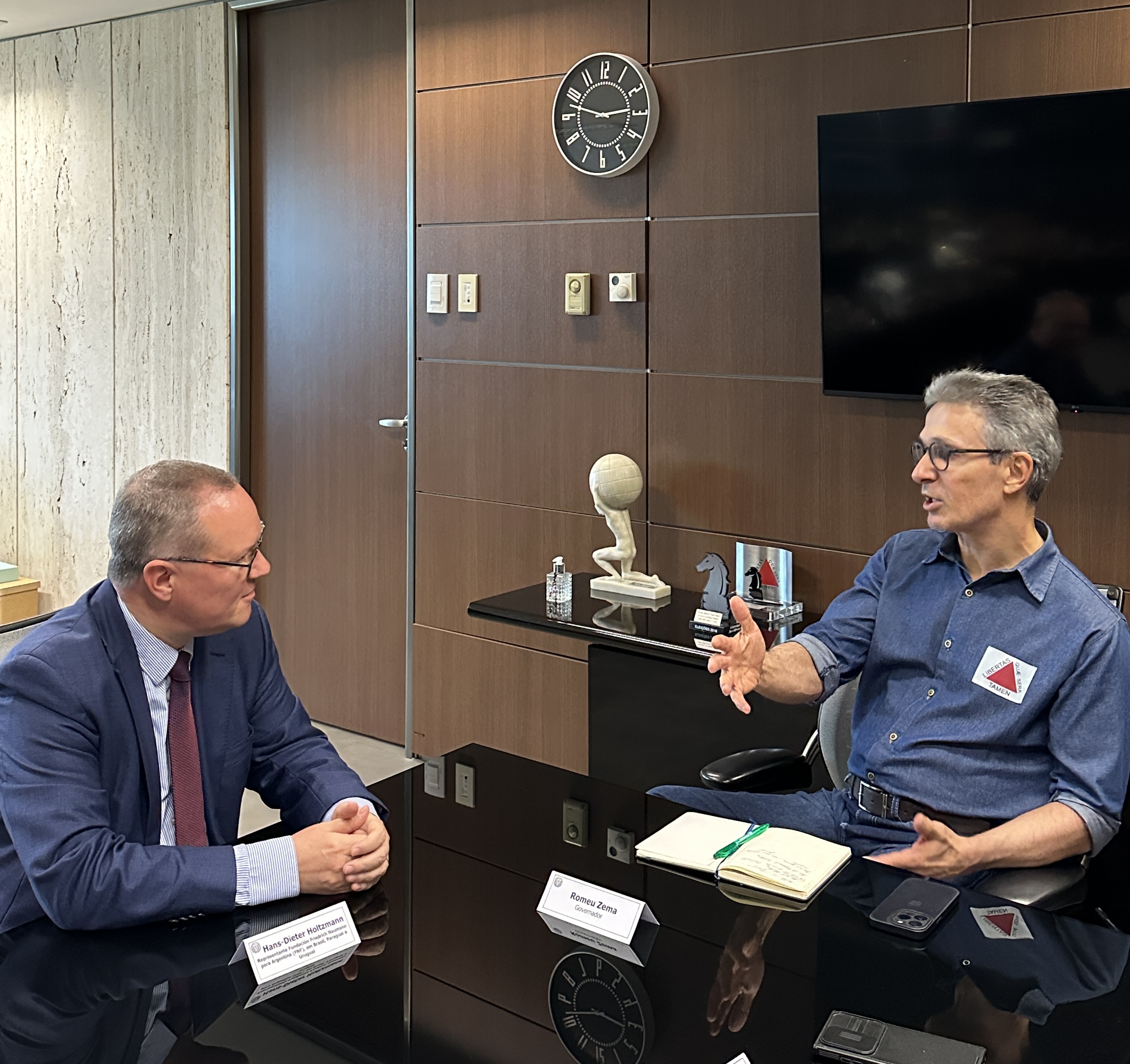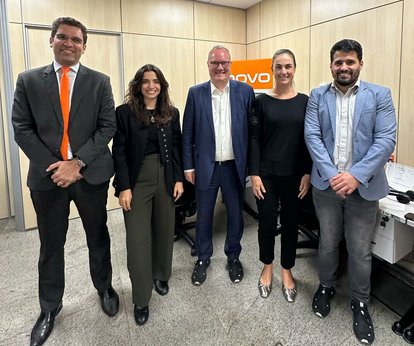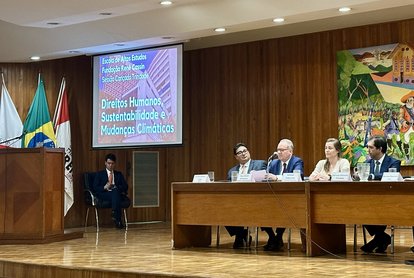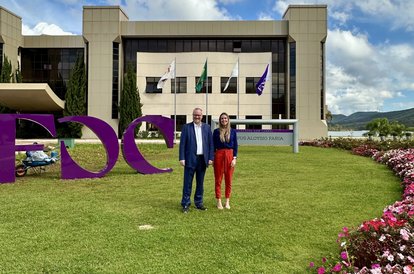Brazil
Belo Horizonte as the Epicenter of Human Rights

Between April 28 and May 2, 2025, Belo Horizonte hosted an academic and political event of great international importance. The capital of Minas Gerais hosted the first Brazilian edition of the Escola de Altos Estudos da Fundação René Cassin, an initiative carried out by the Fondation René Cassin, the Universidade Federal de Minas Gerais (UFMG), the French Embassy in Brazil, the Friedrich Naumann Foundation for Freedom, and the Public Prosecutor's Office of Minas Gerais. This event, named Sessão Cançado Trindade in honor of renowned Brazilian jurist Antônio Augusto Cançado Trindade, marked a decisive event in the regional commitment to human rights and environmental law.
The program's goal was ambitious. To train, connect, and mobilize students, academics, professionals, and decision-makers on contemporary challenges in human rights, sustainability, and climate change. The choice of Belo Horizonte as the venue was no coincidence. Minas Gerais has become a benchmark state in Brazil and the region in terms of responsible governance and sustainable development.
Dr. Hans-Dieter Holtzmann, project director of the Friedrich Naumann Foundation for Freedom in Buenos Aires, was able to confirm this firsthand through high-level meetings. He was received by the vice president of the Banco de Desenvolvimento de Minas Gerais (BDMG), Antônio Claret de Oliveira Júnior, by the councilors of the Novo Party in the Municipal Chamber Braulio Lara, Fernanda Elisa Pereira Altoé and Marcela Trópiay, and by the governor of the State of Minas Gerais himself, Romeu Zema Neto.
During the visit to the Belo Horizonte City Council, where the director was received by councilors from the NOVO Party, they shared their experiences on local governance, the challenges of municipal administration, and legislative priorities. This meeting was a valuable opportunity to learn about local politics from a liberal perspective. A perspective open to institutional innovation and the strengthening of democratic transparency.
Local politics from a liberal perspective

Likewise, in the meeting with Governor Romeu Zema, Dr. Hans-Dieter Holtzmann discussed the main reforms carried out by the governor of Minas Gerais, the only governor from the NOVO Party in Brazil, and the possibilities for growth in cooperation between Europe and Latin America, especially the opportunities for Brazil and Germany to strengthen these ties. The meeting reaffirmed the importance of promoting freedom, democracy, and the values shared by both countries.
The structure of the academic program at the Escola de Altos Estudos combined general courses in the morning with specialized seminars in the afternoon. The morning sessions offered a broad overview of international human rights protection systems—the UN, Inter-American, and European systems—while the afternoon sessions focused on emerging issues: climate law, indigenous peoples' rights, artificial intelligence, and its impact on fundamental freedoms. Contributions from renowned experts such as Professor Sébastien Touzé, Laurence Burgorgue-Larsen, Rodrigo Mudrovitsch, and Cristiane Derani enriched the debate and highlighted the need to integrate environmental protection as an intrinsic dimension of human rights. The panel on Human Rights and Living in Harmony with Nature was particularly illustrative, making it clear that there can be no social justice without ecological justice.
The figure of Cançado Trindade was omnipresent throughout the event. As a former student of UFMG and a key figure in international human rights jurisprudence, his legacy was honored with the installation of a commemorative plaque at the Law School and with multiple conferences analyzing his thinking. In the words of Professor Emmanuel Decaux, president of the Fondation René Cassin, Trindade was “a jurist committed to humanity.” This vision of a humanistic international law centered on human dignity was evident throughout all the program's activities.
A highlight of the academic conference was the speech given by Dr. Hans-Dieter Holtzmann during the opening ceremony. Dr. Holtzmann emphasized the importance of defending human rights evolving from a liberal perspective based on individual freedom, the rule of law, and representative democracy. The director underscored the strategic role that Brazil must assume on the international stage, especially as host of the BRICS summit in Rio de Janeiro and COP30 in Belém. These summits not only position Brazil as a relevant geopolitical actor, but also impose a historical responsibility on it to build bridges between Europe and Latin America.
Opening speech on the development of human rights based on liberal values

Beyond its extremely high academic content, the Sessão Cançado Trindade had a concrete outcome: participants who successfully passed the final exam received a certificate, and the highest-scoring student, on this occasion Lucas Mendes Felippe, won a scholarship to attend the prestigious summer course in Strasbourg. With this distinction the importance of turning academic excellence into transformative leadership was rewarded.
As part of the agenda, Dr. Hans-Dieter Holtzmann also visited the campus of the Fundação Dom Cabral (FDC) in Nova Lima, Minas Gerais, one of the leading business schools in Latin America. There he was received by Patricia Becker, with whom he had a productive exchange on the strategic challenges facing Brazil and opportunities for international cooperation. The meeting provided an opportunity to learn about the work carried out by the FDC to strengthen business leadership and promote sustainable development, reaffirming the shared commitment to a future agenda based on freedom, innovation, and social responsibility.
Campus of the Fundação Dom Cabral, one of the leading business schools in Latin America

The agenda in Belo Horizonte was much more than a high-level and prestigious academic program; it was the articulation of a new legal, political, and social agenda in which human rights and sustainability were addressed as integrative dimensions that cannot be studied separately. Over the course of five days, the city became a laboratory for dialogue, training, and international cooperation, reaffirming the importance of critical thinking and transformative action to achieve concrete change, with liberal values as the tool to achieve it.

